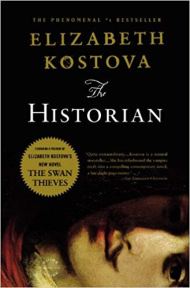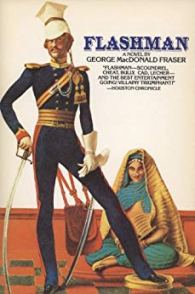
Mo Rocca is a correspondent on the popular CBS program, Sunday Morning. He is also the author of Mobituaries: Great Lives Worth Reliving and of the popular podcast of the same name. Somehow he has managed to put a unique spin on an old subject: biographies. Rocca and Rita Braver discussed Mobituaries and more in a very interesting Book-TV segment some months ago.
— — — — —
Why are new books published in hardcover format long before they’re released as paperbacks? Your first thought is probably that the publisher makes more money, and you’re right. They make a lot more money But there are other reasons as well and a Mental Floss article gives you the details.
— — — — —
What do Voltaire’s Candide and P. G. Wodehouse’s Bertie Wooster have in common? They are both “passive protagonists.” It seems that novelist Jessi Jezewska Stevens never gave the idea of a passive protagonist a second thought (or even a first thought) until someone she met on a book tour to promote her novel, The Exhibition of Persephone Q, brought it up because it pertained to Persephone. So don’t assume that novelists have more insight into what makes their characters tick than you do.
Even more interesting is Steven’s contention that we (and she) are perhaps passive protagonists in our own lives. She might have a point. The Literary Hub article is certainly worth exploring.
— — — — —

Hilary Mantel has just published her third and final book about the life of Oliver Cromwell. She discusses The Mirror & the Light and much more in a Barnes and Noble book podcast.
— — — — —
Hachette Book Group recently announced that it would publish Woody Allen’s memoir Apropos of Nothing. on April 7, 2020. This past Friday they announced that they have decided not to publish the book and have returned all book rights to Allen. The change is due to backlash from many who consider Allen a child molester, and due to a walkout of some Hachette employees in New York City. Read more here.
— — — — —
And now an article for all of you bibliomaniacs. There’s a new documentary film, The Booksellers, about the folks in New York City who are obsessed by rare books. An NPR film review gives you a preview of what you will see if you watch the documentary. You can see the official trailer here.
— — — — —

Author Peter Swanson’s latest novel, Rules for Perfect Murders, gave him a reason to research fiction to find some mystery novels with perfect murders. In a Guardian article Swanson discusses some of the fictional perfect murders he found during his research.
Swanson mentions many authors in the article including Patricia Highsmith who wrote five novels about Tom Ripley who committed a number of perfect murders. While Highsmith’s novels are interesting, they’re not nearly as interesting as her life story. Don’t believe me? You will once you read my 2013 post about the strange Ms. Highsmith.



















